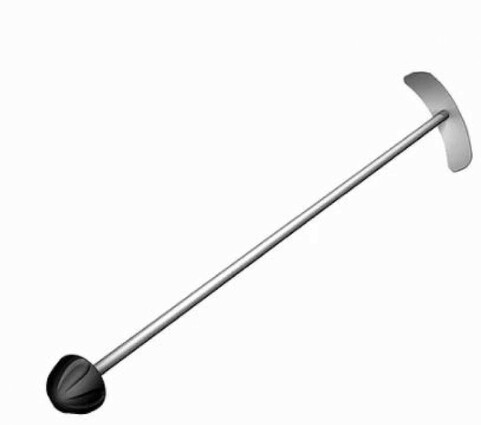What is metrichecking? Metrichecking is the examination of the vaginal discharge in a cow that has calved over 14 days ago, which looks for evidence of infection or slowed healing after calving.
Why should you metricheck your herd?
Cows have only a small window of time to recover fully from calving before they hit peak milking levels and the mating season.
Infections after calving cause a delay in cycling and will also reduce conception rates. Sometimes the infection can spread deeper into the tissue and cause metritis in which case the cow will be toxic and unwell, significantly reducing her milk production and further losing weight.
Infections after calving are an expensive disease!
It adds at least an extra 10 days before cows are ready to be served after calving.
It adds on average, an extra 30 days before cows get in-calf, and it increases the required services by 50%!
Who should you metricheck?
After calving, the uterus of almost every cow will be contaminated by bacteria. While most cows clear these bacteria naturally, around 10-20% will be unable to do so and will often develop endometritis (infection inside the uterus.) Metrichecking is a quick and fast test that can be done at milking time, we recommend testing all cows once they are over 14 days calved.
The most common risk factors for cows to develop endometritis are:
Calving disorders: Assisted calvings, retained fetal membranes, dead calvings, twin calvings, induced calvings/ late abortions. Cows that get mastitis.
Metabolic disorders: Milk fever, ketosis, Se deficiency
We strongly advise to metricheck your whole herd, not just the at-risk cows.
When should I metricheck my herd?
We advise you to metricheck your whole herd to ensure optimal preparation for mating.
As soon as you have about half your cows calved, all cows over 14 days calved should be metrichecked.
In most herds, this means around 3 visits to cover the whole calving season. Late August, Mid September and early October.
Early treatment ensures cows recover quicker and lose less weight. Aiming to get cows clean and healthy well before mating starts.
How do we treat dirty cows?
Once a cow is diagnosed with endometritis, we are able to administer treatment immediately. The treatment procedure is similar to what happens during artificial insemination. There is a nil milk withhold on the product we use, and a 4-day meat withhold. Alternatively, some cows may need additional medicine.
Treating infected cows gets them in calf quicker and improves their body condition and milk production for the year.
- Vince Sharpe

